Breast Augmentation in Brazil
Search and Compare the Best Clinics and Doctors at the Lowest Prices for Breast Augmentation in Brazil
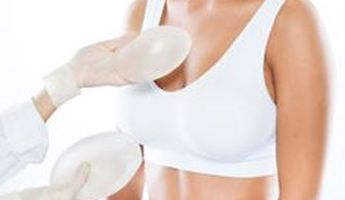
Find the best clinics for Breast Augmentation in Brazil
With Medijump you can browse 12 facilities offering Breast Augmentation procedures in Brazil. The cheapest price available is $2,773 in Araraquara. And for the cheapest price globally, prices start from $208 in Hungary.
Breast Augmentation in Araraquara
Price: $ 2,773
Breast Augmentation in Rio de Janeiro
Price: $ 3,000
Hungary offers the best prices Worldwide
Price: $ 208
From 30 verified reviews
Amanda Maia, 14 September 2020
The seriousness and commitment that you transmit in the consultation, caught my attention!Super attentive, took all my doubts. I loved the consultation and I'm really looking forward to our surgery! (Note: we already scheduled the first appointment, I was so confident that I was fiquei️)Excellent professional!
From 7 verified reviews
Regiane Mendes, 16 December 2018
Great Professionals!
From 1 verified reviews
Vyacheslav Kalaushin, 18 April 2016
One of the best Klinik.
From 11 verified reviews
Fernando Schuler, 11 December 2018
Professionalism is the word that sums up this clinic and its collaborators.
From 25 verified reviews
Leila Mosquera, 21 September 2020
Wonderful clinic! Dr. Luciana is sensational and this extends to her entire team. When I am at the clinic I feel very good energy and I feel like spending all day there. Besides, the clinic is beautiful and makes everything a huge and grateful experience. I am Dr. Luciana's patient and in my opinion she is the best.
From 17 verified reviews
Marcia Megumi, 06 July 2020
Excellent service, great results. I highly recommend it.
From 1 verified reviews
Jaquelino Shagalike, 02 September 2017
I was there to solve the problem of a wart. Dr. Rawlson called another doctor in front of me to ask what would be a good remedy for wart. Then he prescribed the medicine indicated by the other doctor and charged me for the consultation. I hope he deposited the amount in the account of the other doctor who knew what the right remedy for my problem was.
Instituto Braga, located in R Para, Sao Paulo, Brazil offers patients Breast Augmentation procedures among its total of 29 available procedures, across 1 different specialties. The cost of a Breast Augmentation procedure starts from ฿115,000, whilst the national average price is approximately ฿123,690. There are many specialists available at the Clinic, with 4 in total, and they are accredited by The American Society for Aesthetic Plastic Surgery
CosmeticVacations, located in R Real Grandeza, Rio de Janeiro, Brazil offers patients Breast Augmentation procedures among its total of 64 available procedures, across 7 different specialties. Currently, there's no pricing information for Breast Augmentation procedures at CosmeticVacations, as all prices are available on request only, whilst the national average price is approximately $3,437. All procedures and treatments are undertaken by the lead specialist at the Hospital, and they have multiple recognized accreditations, including: ASPS - American Society of Plastic SurgeonsSBCP - Sociedade Brasileira de Cirurgia PlásticaSBD - Sociedade Brasileira de DermatologiaSBCD - Sociedade Brasileira de Cirurgia DermatológicaAEXPI - Associação dos Ex-alunos do Professor Ivo PitanguyCBA - Consórcio Brasileiro de AcreditaçãoSBA - Sociedade Brasileira de AnestesiologiaSBCM - Sociedade Brasileira de Cirurgia da MãoSBU - Sociedade Brasileira de Urologia
Clínica Tournieux Cirurgia Plástica - São Paulo, located in R Para, Sao Paulo, Brazil offers patients Breast Augmentation procedures among its total of 15 available procedures, across 2 different specialties. Currently, there's no pricing information for Breast Augmentation procedures at Clínica Tournieux Cirurgia Plástica - São Paulo, as all prices are available on request only, whilst the national average price is approximately $3,437. All procedures and treatments are undertaken by just a small team of specialists, with 2 in total at the Hospital, and they have multiple recognized accreditations, including: SBCP - Sociedade Brasileira de Cirurgia PlásticaAEXPI - Associação dos Ex-alunos do Professor Ivo Pitanguy
Dra Carla Iaconelli, located in R Para, Sao Paulo, Brazil offers patients Breast Augmentation procedures among its total of 111 available procedures, across 2 different specialties. Currently, there's no pricing information for Breast Augmentation procedures at Dra Carla Iaconelli, as all prices are available on request only, whilst the national average price is approximately $3,437. All procedures and treatments are undertaken by the lead specialist at the Hospital, and they have multiple recognized accreditations, including: FEBRASGO - Federação Brasileira das Associações de Ginecologia e ObstetríciaSBRA - Sociedade Brasileira de Reprodução Assistida
Consultório de Cirurgia Plástica, located in Av Sen Souza Naves, Curitiba, Brazil offers patients Breast Augmentation procedures among its total of 19 available procedures, across 2 different specialties. Currently, there's no pricing information for Breast Augmentation procedures at Consultório de Cirurgia Plástica, as all prices are available on request only, whilst the national average price is approximately $3,437. All procedures and treatments are undertaken by the lead specialist at the Hospital, and they are accredited by SBCP - Sociedade Brasileira de Cirurgia Plástica
- Home
- Brazil
Compare Before & After Photos of _procedure_photos.phpBreast Augmentation


Full-side view
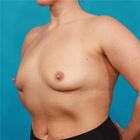

Half-side view


Front view


Half-side view
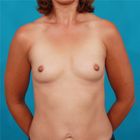

Front view
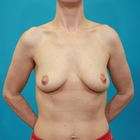

Front view
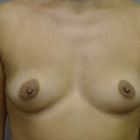
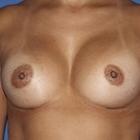
Front view
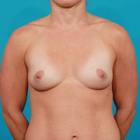

Front view
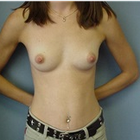

Front view
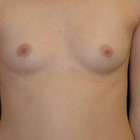
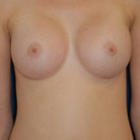
Front view
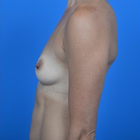
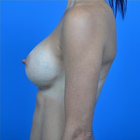
Full-side view
WHY US?
At Medijump, we're making medical easy. You can search, compare, discuss, and book your medical all in one place. We open the door to the best medical providers worldwide, saving you time and energy along the way, and it's all for FREE, no hidden fees, and no price markups guaranteed. So what are you waiting for?

Free

Best Price

Widest Selection

Risk-Free
What you need to know about Breast Augmentation in Brazil

Breast augmentation, also known as a Boob Job or Breast Enlargement, is a surgical procedure aimed at increasing breast size, enhancing shape, or improving symmetry. In Brazil, this procedure is carried out by board-certified plastic surgeons in accredited medical facilities, ensuring both safety and quality.
What is the cost of Breast Augmentation in Brazil?
Prices in Brazil are competitive, often offering savings without compromising on quality, especially when compared to costs in the US or Europe. However, factors such as surgeon’s fees, facility costs, and the type of implants affect the total cost.
What does a Breast Augmentation Procedure Involve?
The surgery involves placing breast implants under the breast tissue or chest muscles. Choices between saline or silicone implants can be made based on the desired feel and appearance. This is something your surgeon will discuss with you prior to even travelling.
How Long Should I Stay in Brazil for a Breast Augmentation Procedure?
The length of stay in Brazil for a Breast Augmentation is subject to various factors, such as your overall health, the specific nature of the procedure, and your individual recovery rate. Generally, Breast Augmentation surgery is an outpatient process, meaning you may be able to return home on the same day. However, a stay of up to two days might be necessary if your procedure is more intricate.
Although the hospital stay is relatively brief, it is advisable to remain in Brazil for at least one-week post-procedure. This timeframe allows for initial recovery and a follow-up appointment with the surgeon. Moreover, in the event of any complications, prompt medical assistance will be accessible. Thorough knowledge of the recovery process and its duration is crucial for proper preparation and managing stress during treatment.
What's the Recovery Time for Breast Augmentation Procedures in Brazil?
Post-surgery, a recovery period of one to two weeks is generally required, with follow-up visits to the surgeon. It's crucial to follow all post-op instructions for optimal healing.
Experiencing swelling and discomfort following the operation is normal, both of which should gradually alleviate with time. You will be required to wear a compression garment, take prescribed medications, and maintain a healthy lifestyle for an effective recovery.
What sort of Aftercare is Required for Breast Augmentation Procedures in Brazil?
Post-operative care is critical for the success of a Breast Augmentation. The initial recovery phase usually includes prescribed medications to alleviate pain and avert infection. Individuals can normally resume everyday activities within a few weeks, depending on their healing pace and bodily responses. However, it is advisable to refrain from vigorous activities for a minimum of six weeks post-procedure.
What's the Success Rate of Breast Augmentation Procedures in Brazil?
In Brazil, Breast Augmentation boasts a relatively high success rate, which contributes to its immense popularity among individuals seeking improvements in their physical appearance. Numerous patients have reported satisfaction and enhanced confidence after undergoing the procedure, making it a widely favoured cosmetic surgery.
Are there Alternatives to Breast Augmentation Procedures in Brazil?
In Brazil, there are several alternatives to the Breast Augmentation. If you're considering breast augmentation strictly for cosmetic reasons and prefer non-surgical options, various suitable methods are available. Alternatives include fat grafting, hormonal therapy, and natural remedies. Fat grafting, also known as fat transfer, involves removing fat from different body parts and injecting it into your breasts. This approach is regarded as safer because it employs the body's tissue, minimizing complications.
What Should You Expect Before and After the Procedure?
Prior to the procedure, your surgeon will discuss your expectations and the anticipated outcomes of your Breast Augmentation. The preoperative consultation comprises an in-depth conversation about your medical history, a physical examination, and an outline of the procedure and postoperative care. Open and candid communication with your healthcare provider is crucial at this stage to ensure the treatment matches your objectives.
Post-procedure, initial swelling and discomfort are normal and can be managed with prescribed medication. It's vital to adhere to your surgeon's post-operative guidelines, which include caring for surgical incisions, taking prescribed medications, and attending follow-up appointments. As swelling subsides and incision lines fade gradually, your enhanced breast profile will become apparent.
Keep in mind that the decision to pursue a Breast Augmentation is deeply personal and should not be made hastily. Allocate time to consider the advantages and drawbacks, and ensure you are well-informed.
What are the Risks and Complications of Breast Augmentation Procedures in Brazil?
As is the case with any surgical intervention, Breast Augmentation comes with its own set of risks and potential complications that need to be considered. These may include infections, bleeding, alterations in nipple or breast sensations, implant leakage or rupture, development of scar tissue, and unsatisfactory outcomes that could necessitate further surgeries.
Some individuals may also encounter complications tied to anesthesia, such as respiratory problems and reactions to medication. The psychological ramifications should not be overlooked, considering surgical procedures can impact mental well-being. An extensive conversation with your healthcare provider about these potential risks remains a key component in making an informed choice.
How to Prepare for Breast Augmentation in Brazil?
Thorough preparation plays a significant role in the success of your Breast Augmentation. Before the surgery, you must have detailed conversations with your surgeon about your medical background, allergies, current medications, and lifestyle habits such as smoking or alcohol consumption. You may need to cease certain medications and habits, including smoking, weeks before the procedure, as they can influence the healing process.
Practical preparations like organizing for someone to be with you on the day of the surgery, scheduling sufficient time off work for recovery, and establishing a comfortable space at home for recuperation can contribute to a smoother post-operative phase. Your surgeon's team will also advise you on pre-operative fasting and hygiene guidelines.
What are some Common Misconceptions about Breast Augmentation?
Despite its widespread popularity, numerous misconceptions surround the Breast Augmentation. One such misconception asserts that breast implants are permanent. In actuality, breast implants may require replacement after 10-15 years, with the specific timeframe depending on individual health and lifestyle factors. Another false assumption is that breast augmentation solely serves vanity purposes. In reality, many patients undergo this procedure following mastectomy or as part of gender-affirming surgery.
A further common myth suggests that breast augmentation hinders breastfeeding. While a few instances might affect breastfeeding, the majority of individuals with breast implants can successfully breastfeed.
Whilst the information presented here has been accurately sourced and verified by a medical professional for its accuracy, it is still advised to consult with your doctor before pursuing a medical treatment at one of the listed medical providers
No Time?
Tell us what you're looking for and we'll reachout to the top clinics all at once
Enquire Now

Popular Procedures in Brazil
Prices Start From $834

Prices Start From $500

Prices Start From $93

Prices Start From $85

Prices Start From $477

Prices Start From $931

Recommended Medical Centers in Brazil for Breast Augmentation

- Interpreter services
- Translation service
- Religious facilities
- Medical records transfer
- Medical travel insurance
- Health insurance coordination
- TV in the room
- Safe in the room
- Phone in the room
- Private rooms for patients available

- Interpreter services
- Translation service
- Religious facilities
- Medical records transfer
- Medical travel insurance
- Health insurance coordination
- TV in the room
- Safe in the room
- Phone in the room
- Private rooms for patients available

- Interpreter services
- Translation service
- Religious facilities
- Medical records transfer
- Medical travel insurance
- Health insurance coordination
- TV in the room
- Safe in the room
- Phone in the room
- Private rooms for patients available

- Interpreter services
- Translation service
- Religious facilities
- Medical records transfer
- Medical travel insurance
- Health insurance coordination
- TV in the room
- Safe in the room
- Phone in the room
- Private rooms for patients available

- Interpreter services
- Translation service
- Religious facilities
- Medical records transfer
- Medical travel insurance
- Health insurance coordination
- TV in the room
- Safe in the room
- Phone in the room
- Private rooms for patients available

- Interpreter services
- Translation service
- Religious facilities
- Medical records transfer
- Medical travel insurance
- Health insurance coordination
- TV in the room
- Safe in the room
- Phone in the room
- Private rooms for patients available

- Interpreter services
- Translation service
- Religious facilities
- Medical records transfer
- Medical travel insurance
- Health insurance coordination
- TV in the room
- Safe in the room
- Phone in the room
- Private rooms for patients available

- Interpreter services
- Translation service
- Religious facilities
- Medical records transfer
- Medical travel insurance
- Health insurance coordination
- TV in the room
- Safe in the room
- Phone in the room
- Private rooms for patients available

- Interpreter services
- Translation service
- Religious facilities
- Medical records transfer
- Medical travel insurance
- Health insurance coordination
- TV in the room
- Safe in the room
- Phone in the room
- Private rooms for patients available

- Interpreter services
- Translation service
- Religious facilities
- Medical records transfer
- Medical travel insurance
- Health insurance coordination
- TV in the room
- Safe in the room
- Phone in the room
- Private rooms for patients available
Breast Augmentation in and around Brazil
About Brazil
Occupying the title of the largest country in South America, Brazil embraces a diverse population of over 209 million people. The nation is globally renowned for its passion for football (also referred to as soccer in some parts of the world) and their dynamic, flamboyant carnival traditions, boasting a vibrant mix of music, dance, and colorful attire.
In addition to its vivacious culture, Brazil is a sanctuary of spectacular natural beauty. The country nurtures some of the world's most stunning natural wonders, including the dramatic Iguacu Falls and the world's largest tropical rainforest, the Amazon Rainforest, teeming with diverse plant and animal species. One can't miss the landmark figurine of Christ the Redeemer in Rio de Janeiro that towers 98-feet high, becoming a symbol of Brazil's deep-rooted religious faith and an iconic sight that captures hearts worldwide.
Brazil offers more than 60 JCI-accredited facilities and is one of the leading destinations in the world for cosmetic surgery, with Breast Augmentation procedures being especially popular. Doctors are often Western-trained and speak English on top of Portuguese and Spanish. Local accreditations include the Consortium of Brazilian Accreditation and the Brazilian Hospital Medical Quality Organization (ONA). Popular locations within Brazil include the capital Brasilia, Rio de Janeiro, Sao Paulo, and Curitiba.
Popular Parts of Brazil
- Rio de Janeiro is a combination of natural attractions and metropolis. It is known to be a party city that offers good times and an unforgettable experience. Lounge around in the world-famous beaches of Ipanema and Copacabana, sample Brazilian cuisine, hike the summit of Corcovado and see the high statue of Christ the Redeemer, dance in Rio Carnival, and see the spectacular views of Ipanema and Guanabara Bay from the Sugarloaf Mountain.
- São Paulo is the largest city in Brazil. It is a huge city that at first glance seems intimidating. It offers hundreds of museums, quirky urban art, delicious cuisine, lively nightlife, and intense cultural experience. Visit Avenida Paulista (Paulista Avenue), a street filled with shopping centers, parks, bars, restaurants, museums, theatres, and cultural spaces.
- Salvador is full of vibrant cultures. It is the heart of Brazil’s Afro-Brazilian community. The city’s charm lies in its pastel-colored neighborhood, centuries-old architecture, and freshly-cooked acarajé and completed with wild festivals and capoeira circles every night.
- Brasília is Brazil’s capital. It’s very modern with futuristic architecture that looks more like artworks than ordinary buildings. It’s a paradise for architecture buffs. Besides the architecture, the food and nightlife in this city is something that should not be missed.
- Manaus might be isolated in terms of location, but it’s actually a large city with a prospering industry and a rich culture. The city is also filled with natural beauty; green spaces, waterfalls, and ecological parks surround its colonial buildings. It is the gateway to the Amazon Rainforest.
Weather and Climate in Brazil
As a large country, the weather in Brazil varies from tropical in the north to temperate in the south. A large part of the country lies in the topics. Brazil is a year-round destination because it has a steady average annual temperature. The temperature rarely drops below 20 °C.
Winter in Brazil starts in May and ends in September. The weather remains tropical in the north with an average temperature ranging between 20 °C to 30 °C. In Rio de Janeiro, the temperature varies between 14 °C to 25 °C. However, the evenings usually feel a lot colder.
During this particular season, one can expect a fair amount of rainfall in Rio, leading to many wet and rain-soaked days. If you plan a visit at this time, it's wise to keep that in mind and prepare accordingly. In contrast, further inland, São Paulo experiences significantly cooler temperatures compared to Rio, reflecting the country's vast geographical expanse and diverse microclimates spread across its regions.
This temperature drop might require some warm clothing, especially during late evenings and nights. So, whether you wish to enjoy the rainy murmur in Rio or seek the cool retreat of São Paulo, there's something unique for every traveler in Brazil during this season.
The temperature in Rio rise between November and March, with the highest temperature of around 40 °C but with a thermal sensation of around 50 °C. The Rain rarely lasts long during these months. In the north of Brazil, the rainy season starts in December. March and May see the heaviest rainfall. It’s hot and humid with frequent rain throughout the year in the Amazon.
Getting Around in Brazil
The most popular international airports are Rio de Janeiro–Antonio Carlos Jobim International Airport (popularly known as Galeão International Airport) and São Paulo/Guarulhos–Governador André Franco Montoro International Airport. Both airports serve domestic and international flights to many cities around the globe. The airports mainly serve major airlines but there are budget airlines such as Norwegian Air UK. Tourists can take taxis, bus, train, or car rental from both airports to the city centers.
Brazil is really big, so there will be a lot of long-distance travel to get around the country. The easiest and fastest way to get from one city to another is by domestic flights. The only downside is that the tickets are very expensive. LATAM and GOL Airlines offer multi-trip tickets or air pass. The most economical option is to buy an air pass if you plan to visit a number of different cities.
Buses are popular in Brazil, servicing most areas of the country. The bus system is excellent and provides a comfortable and economical way of travel. Be aware that the distance can be really tiring and overwhelming; some trips can take over 40 hours. The buses are operated by hundreds of different private companies, but the price is standardized. The fare varies from 75 BRL to 240 BRL. There are luxurious buses too.
A good way to get around major cities like São Paulo and Rio is to use Brazil Metro (subway). The fares are around 3.50 BRL to 3.80 BRL. You can purchase rechargeable travel cards. The metro does not operate at night. Be sure to watch your belongings at all times when traveling on the metro.
Taxis run on a metered system, but if you travel a bit further out of town, you need to negotiate the price with the driver. It is best to phone for a taxi or pick one up at a taxi station and make sure to get into a licensed taxi. Ferries and other water travel are important in many parts of Brazil.
Tourist Visas in Brazil
Nationals of 72 countries and territories can enter and stay in Brazil for up to 90 days without a visa. In some cases, an identity document may be accepted instead of a passport. Citizens of other countries, including China and India, must apply for and obtain a visa before entering Brazil. It is recommended to contact the nearest Brazilian embassy or consulate for the most up-to-date visa information.
Brazil offers an electronic visa (e-Visa) for citizens of eligible countries. The e-Visa is valid for two years and allows multiple entries for stays of up to 90 days per year. Applicants can apply for the e-Visa online through the Brazilian government's website.
Additional Information
- Local Currency: The official currency is the Brazilian Real (BRL). 1 USD will get you approximately 5.04 BRL.
- Money & Payments: ATMs are widely available in Brazil and it is the easiest way of getting cash in big cities. ATMs in smaller towns usually don’t work for non-Brazilian cards. Credit cards (Visa and MasterCard) are accepted in numerous shops, restaurants, and hotels. It might be handy to always have cash with you, but always be extremely cautious. Tipping is optional for housekeepers, tip parking assistants 2 BRL, or more since they do not receive wages and depend on tips. Taxis do not expect tips. Restaurants usually include a 10% service charge in the bill.
- Local Language: The official language is Portuguese. English is not widely spoken, especially outside Rio and São Paulo.
- Local Culture and Religion: The largest religion in Brazil is Christianity with more than 60% of the population follows Roman Catholicism.
- Public Holidays: Brazil celebrates major Christian religious holidays as well as Independence Day and Civil Servants Day. Festa Junina, Parintins Folklore Festival, and Oktoberfest are three of the biggest annual festival in the country.
Popular Searches
- Plastic Surgery in Thailand
- Dental Implants in Thailand
- Hair Transplant in Thailand
- Breast Augmentation Thailand
- Gastric Sleeve in Thailand
- Gender Reassignment Surgery in Thailand
- Laser Hair Removal in Bangkok
- Botox in Bangkok
- Dermatology in Bangkok
- Breast Augmentation in Bangkok
- Coolsculpting in Bangkok
- Veneers in Turkey
- Hair Transplant in Turkey
- Rhinoplasty in Turkey
- Stem Cell Therapy in Mexico
- Rhinoplasty in Mexico
- Liposuction in Mexico
- Coolsculpting in Tijuana
- Rhinoplasty in Korea
- Scar Removal in Korea
- Gastric Sleeve in Turkey
- Bone Marrow Transplant in India
- Invisalign in Malaysia
- Plastic Surgery in the Dominican Republic
- Tummy Tuck in the Dominican Republic
- Plastic and Cosmetic Surgery in Poland
- Rhinoplasty in Poland
- Hair Implant in Poland
- Dental Implants in Poland
- IVF in Turkey










